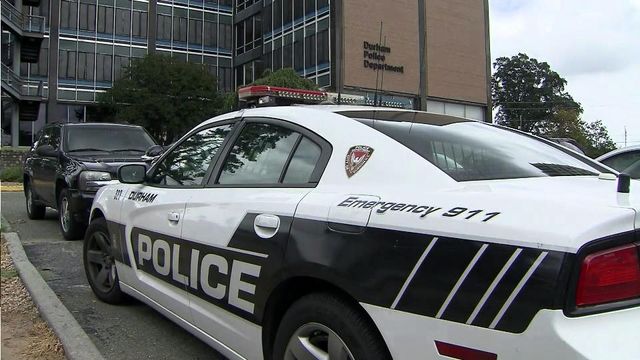Groups feel vindicated by report showing racial profiling in Durham traffic stops
New data showing black men are more likely to be stopped by police in Durham was hailed by civil rights groups Friday as validation of their calls for change in the police department.
Posted — UpdatedResearch firm RTI International examined 151,700 traffic stops conducted in Durham between January 2010 and October 2015 and found that, in traffic stops with male drivers, the odds of a stopped driver being black were 20 percent higher during daylight than after dark, when it was harder for officers to distinguish the race of a driver.
"Turns out that we weren't hallucinating," said Rev. Mark-Anthony Middleton, pastor of Abundant Hope Christian Church.
Groups such as the Southern Coalition for Social Justice and Fostering Alternatives to Drug Enforcement, or FADE, have been pushing for change in the Durham Police Department for at least three years, alleging racial bias in the way the department conducted traffic enforcement and drug enforcement.
Former Police Chief Jose Lopez, who retired in December, has said in the past that there was no more racial bias in the Durham Police Department than any other organization.
The greatest racial gap was found in traffic stops conducted by members of the High Enforcement Abatement Team, which focuses on drugs, vice and gang violence.
FADE complained about the HEAT unit in 2013, and police said they are now making changes to it.
"We've redirected some of the HEAT team's focus," Deputy Chief Anthony Marsh said.
The RTI study also indicated that the racial gap in traffic stops narrowed over the six-year period, with black male drivers most represented between 2010 and 2013. Community groups said that trend is due in part to their work.
"The report says disproportionality has somewhat disappeared. If that's the case, it did not happen by accident," Middleton said.
Representatives of FADE and the Southern Coalition for Social Justice said that, while they are pleased with the study's findings, more reforms are needed in the police department. Some of the recommendations they made in 2013 have yet to be addressed, they said.
"This is not a time for a victory lap. This is a time for us to double down and get serious," Middleton said. "This conversation can't be police-driven. It cannot be city manager-driven. It's got to be at the council level, it's got to be at the mayoral level, and citizens have got to engage and say, 'What do we want the philosophy of policing to be?'"
• Credits
Copyright 2024 by Capitol Broadcasting Company. All rights reserved. This material may not be published, broadcast, rewritten or redistributed.






